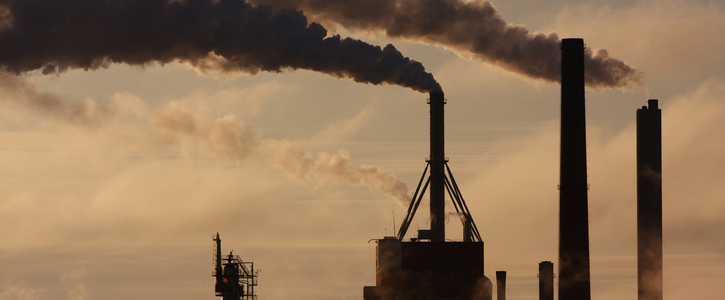5,000 signatures reached
To: Minister of Climate Change
Don't Subsidise Pollution: End Free Carbon Credits

End free carbon credits. Cut pollution. Unlock green jobs.
We call on the Minister of Climate Change and Cabinet to:
1. End free carbon credits: accelerate the phase out of free industrial allocation in the Emissions Trading Scheme to end free credits by 2030.
2. Cut pollution: use funds generated from ending free credits to contribute to the upfront costs of decarbonising emissions intensive industries (in the form of loans or in return for equity stakes).
3. Unlock green jobs: protect jobs with a Carbon Border Mechanism (like the EU is introducing), green infrastructure investment via a Ministry of Green Works or public procurement, and fund a just transition for any affected workers.
We call on the Minister of Climate Change and Cabinet to:
1. End free carbon credits: accelerate the phase out of free industrial allocation in the Emissions Trading Scheme to end free credits by 2030.
2. Cut pollution: use funds generated from ending free credits to contribute to the upfront costs of decarbonising emissions intensive industries (in the form of loans or in return for equity stakes).
3. Unlock green jobs: protect jobs with a Carbon Border Mechanism (like the EU is introducing), green infrastructure investment via a Ministry of Green Works or public procurement, and fund a just transition for any affected workers.
Why is this important?
Subsidising pollution in a climate crisis doesn’t make sense.
When we all play our part in cutting climate pollution, then we can get further together, faster. But as cyclones and floods devastate communities across Aotearoa, the people in government are allowing large multinationals to have a free pass to pollute.
Multinationals like Rio Tinto and Methanex are part of a select few corporations who produce 10% of Aotearoa’s climate pollution and get a $600 million a year subsidy to offset their emissions, in the form of free carbon credits. This encourages these companies to maintain business as usual, not to invest in decarbonisation.
Under current legislation, these companies will still be getting free credits for decades to come, even after the whole country is meant to be at net zero emissions. Meanwhile, everyday households play their part by paying the carbon price in our petrol and electricity bills.
This is increasingly putting the burden of action on individual households to try to meet our targets, while some of our biggest polluting industries continue to get a free pass to pollute.
The good news is that with the right type of government support, the technology is there for industries currently getting free credits like steel, concrete and aluminium to transition. The recent announcement of NZ Steel’s decarbonisation plans with support from government shows that change is possible, and that free carbon credits are no longer needed.
By ending free carbon credits, providing upfront loans for industries with decarbonisation options, and protecting domestic producers from more polluting competitors with a Carbon Border Mechanism, the government can accelerate emissions reductions and ensure every sector is taking responsibility for its pollution.
We can protect jobs that are necessary for decarbonising the wider economy, while supporting a just transition for those in industries that don’t have a place in a climate safe future.
Together we can create an industrial future for Aotearoa that is green, creates good jobs, and ensures a fair distribution of effort in cutting climate pollution.
This petition is organised by Common Grace Aotearoa in collaboration with the NZ Green Building Council Te Kaunihera Hanganga Tautaiao, 350 Aotearoa, Greenpeace Aotearoa, Parents for Climate Aotearoa, Coal Action Network Aotearoa, Christian World Service, the Anglican Bishop of Wellington, Generation Zero, Climate Club, Engineers for Sustainable Development, and Oxfam Aotearoa.
When we all play our part in cutting climate pollution, then we can get further together, faster. But as cyclones and floods devastate communities across Aotearoa, the people in government are allowing large multinationals to have a free pass to pollute.
Multinationals like Rio Tinto and Methanex are part of a select few corporations who produce 10% of Aotearoa’s climate pollution and get a $600 million a year subsidy to offset their emissions, in the form of free carbon credits. This encourages these companies to maintain business as usual, not to invest in decarbonisation.
Under current legislation, these companies will still be getting free credits for decades to come, even after the whole country is meant to be at net zero emissions. Meanwhile, everyday households play their part by paying the carbon price in our petrol and electricity bills.
This is increasingly putting the burden of action on individual households to try to meet our targets, while some of our biggest polluting industries continue to get a free pass to pollute.
The good news is that with the right type of government support, the technology is there for industries currently getting free credits like steel, concrete and aluminium to transition. The recent announcement of NZ Steel’s decarbonisation plans with support from government shows that change is possible, and that free carbon credits are no longer needed.
By ending free carbon credits, providing upfront loans for industries with decarbonisation options, and protecting domestic producers from more polluting competitors with a Carbon Border Mechanism, the government can accelerate emissions reductions and ensure every sector is taking responsibility for its pollution.
We can protect jobs that are necessary for decarbonising the wider economy, while supporting a just transition for those in industries that don’t have a place in a climate safe future.
Together we can create an industrial future for Aotearoa that is green, creates good jobs, and ensures a fair distribution of effort in cutting climate pollution.
This petition is organised by Common Grace Aotearoa in collaboration with the NZ Green Building Council Te Kaunihera Hanganga Tautaiao, 350 Aotearoa, Greenpeace Aotearoa, Parents for Climate Aotearoa, Coal Action Network Aotearoa, Christian World Service, the Anglican Bishop of Wellington, Generation Zero, Climate Club, Engineers for Sustainable Development, and Oxfam Aotearoa.
